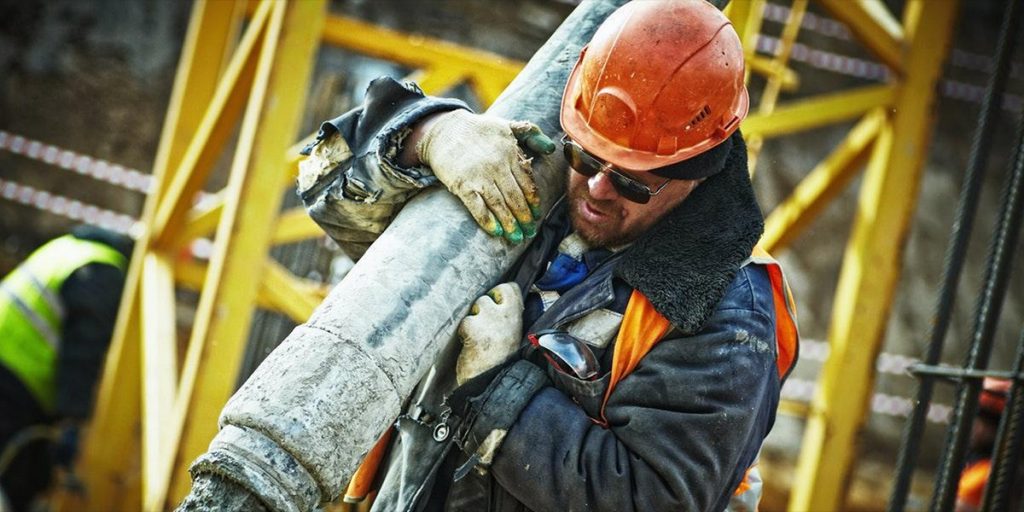One of the hardest hit industries from the opioid crisis is the construction industry. Even after years of data and investigations exposing the widespread drug use on construction job sites, experts say that construction companies still aren’t doing enough to help workers who are battling substance abuse.
Construction workers are responsible for the highest percentage of opioid-related deaths in several states, including Massachusetts and West Virginia. Although our country has been focused on Covid and other events, the opioid crisis is still very much alive and real. We are still at epidemic levels, with over 46,000 deaths in 2018, according to the CDC. Data from 2019 is not yet available but believed to be just as dire.
Why Opioid Abuse is a Problem in the Construction Industry
Opioid abuse is a significant problem in the construction industry, and a closer look into this line of work explains why. The main contributing factor is that construction workers have physically demanding jobs and are prone to injury. A study by the Midwest Economic Policy Institute found that the injury rate for construction workers is 77 percent higher than the national average.
When a worker suffers an injury on the job, they’re often prescribed an opioid pain medication. This allows them to treat the pain and return to work as soon as possible. Deadlines don’t wait, after all. The problem is that construction workers get used to taking opioids. They also often take more than recommended to get back to work faster.
Because construction workers often return to the job site before they are fully healed, they run the risk of getting another injury or worsening their current injury. This could lead to the sustained use of opioids. And, if they show up to work under the influence of opioids, they put themselves and others at risk.
What’s Being Done to Help Construction Workers?
Construction unions have tried to address the opioid problem and prevent unnecessary deaths, but they haven’t been effective – at least yet. In reality, it’s going to take years of talking, education and awareness to stop this problem.
For now, some unions have advocated for contract language that promotes therapies related to opioid addiction. This way, workers struggling with addiction will know where to go for help. Companies have also held “stand-down days” to educate their workforce on the dangers of substance abuse.
Of course, change doesn’t happen overnight. But we still need more. In Massachusetts, from 2011-2015, 25 percent of all workers who died of opioid-related deaths were in construction. At the very least, the secrecy surrounding opioid abuse needs to stop, as the cover up is just as deadly as the opioid use itself.
Possible Ways to Address the Opioid Crisis in the Construction Industry
At Compassion Behavioral Health, we work with a wide range of people who are battling opioid addiction. Even though there are stereotypes about what an addict looks and acts like, they rarely fit these descriptions. Many addicts are working adults who have families to care for and bills to pay. Some have ended up addicted because they were over-prescribed pain medications.
Sadly, it doesn’t take long for people to get addicted. On top of that, when you work in an industry where many of your coworkers use drugs and alcohol to numb the pain, it becomes the norm. This is why education and awareness are critical.
Here are some of our recommendations for helping fight opioid abuse in the construction industry:
- Educate workers on addiction. Addiction has a stigma attached to it, and it can result in problems being swept under the rug. Construction workers need to understand addiction and not be afraid to talk about it.
- Conduct opioid safety training. Construction companies can benefit from opioid safety training. Some programs are also aimed at getting Narcan on all job sites. Narcan can stop a fatal overdose while waiting for first responders to arrive.
- Promote alternative pain management. Even though opioids provide quick relief, they are only a temporary fix. Construction companies should be more open to promoting alternative pain management therapies, such as yoga and acupuncture.
- Increase safety training. There is no substitute for safety training. Construction companies should continue offering safety training so that workers follow the safest and most updated practices.
- Employee assistance programs are work-based intervention programs intended to help people resolve personal problems that might be affecting their work performance, including substance abuse and mental health issues.
Who Should Be in Charge of Education and Treatment?
While the above options are both practical and effective, it’s hard to say who’s going to take charge. The construction industry isn’t made up of medical professionals and drug counselors – they are building trade unions, subcontractors, contractors and construction management firms. It’s safe to assume that no one is eager to take the lead on addiction.
That said, some estimates have found that the opioid epidemic is keeping millions of people out of the workforce. This is a problem. If contractors can’t find skilled, healthy workers to do the work, how are they going to meet deadlines and stay afloat? This is what may ultimately push construction companies to do more.
As an example, some construction management firms are choosing to take on the responsibility themselves rather than relying on unions. Their goal is to get in front of workers, provide education and awareness and offer ways to help rather than waiting for the problem to show up on their doorstep. It’s too soon to tell if this approach will work, or if construction management firms can handle it on their own, but it’s a step in the right direction.
We Treat Construction and Other Skilled Workers
Construction workers are essential workers. We value each and every one of them! But, we can’t ignore the high rates of opioid abuse in this industry, as well as the number of good, hardworking people we lose every year to addiction. If you know someone in this industry who is dependent on prescription opioids, contact Compassion Behavioral Health today. We offer affordable, convenient treatment services for substance abuse and mental health.



